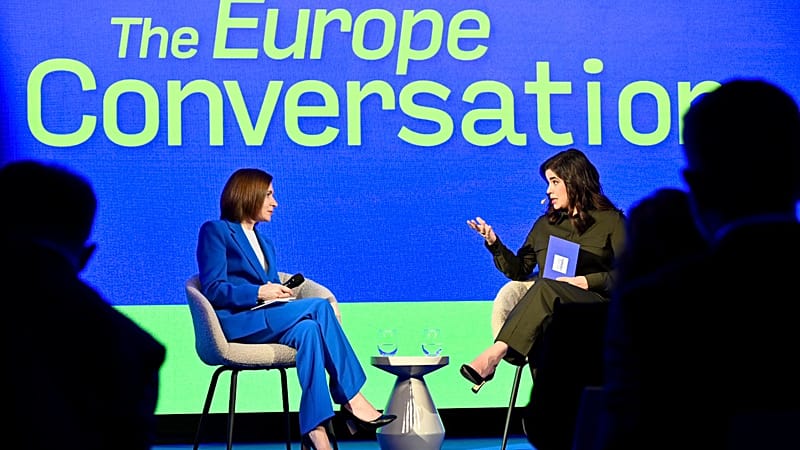Candidate countries celebrate renewed momentum in EU accession process

After years of stalled progress in the enlargement of the European Union, several countries are now back on track to join the bloc within the next few years.
Leaders from EU hopefuls gathered in Brussels for the Euronews Enlargement Summit on Tuesday, as the European Commission presented its latest progress report.
"Unfortunately, it was needed an aggression in the European soil, a military aggression, to make Brussels wake up," said Albania’s Prime Minister Edi Rama during his address at the summit, referring to the acceleration in accession talks since the start of Russia’s all-out war against Ukraine.
Rama expressed hope that this renewed momentum would not fade, and that his country would finally take its place at the EU table.
He was not the only one hoping to become a member in the coming years. Montenegro and Albania are expected to be the newest EU members by 2028 and 2030, respectively.
According to the annual report published on Tuesday, the Commission believes Montenegro is “on track” to meet its ambitious goal of closing all clusters in its EU accession negotiations by the end of 2026.
Montenegro’s Deputy Prime Minister for Foreign and European Affairs Filip Ivanović said at the summit that his country’s progress was the result of “hard work and political dedication.”
"The report that we just received is additional evidence to the plan we have had as a government. We want each report better than the others. This is the best report ever," he said.
Ivanović also praised the EU's renewed enlargement goals, calling it the bloc's "most important policy" and saying that more countries joining the bloc would strengthen its geopolitical position.
Moldova’s President, Maia Sandu, also sees Moldova joining the EU by 2030.
In her speech, Sandu warned of the risks of failing to make tangible progress in the next three years, ahead of Moldova’s next elections.
"We will be used against the EU if there is no real perspective on integration," she said during the summit.
On the other side of the spectrum is Serbia, which has seen the process stall in recent years.
Serbian President Aleksandar Vučić defended the country's commitment to reforms during his interview on Tuesday.
“Serbia is very much committed to its EU path and will take it in a very serious and responsible way," he said.
Some accession fatigue persists
For many of these countries, particularly those in the Western Balkans, the accession process has dragged for more than a decade.
North Macedonia applied for membership in 2004, more than twenty years ago. Montenegro followed in 2008 while Albania and Serbia did so in 2009. Moldova is one of the most recent ones, presenting its bid in 2022.
Hristijan Mickoski, the prime minister of North Macedonia, said the country has seen little progress in a quarter of a century.
“Unfortunately, we are in the same place where we were 25 years ago due to some artificial reasons,” Mickoski told the summit, referring to the decades-long Greek veto that led to the country changing its name, as well as the current Bulgarian veto on issues involving minority rights, history and language.
“Despite all those humiliations and disappointments and despite the current frustration which is inside of our citizens, we do share the same values,” he added.
Albania's Rama also lamented what he called “years of humiliation”, during which the process was stalled.
After years of talks, EU candidates have one thing clear: they want full membership. No middle ground, no probation period, and full voting rights.
“We’ve been on trial for the past 15 years, and we will remain on trial until we close all the negotiation chapters. Once we close all the chapters, as far as I’m concerned, the trial is over,” Montenegro's Ivanović said.
Today

